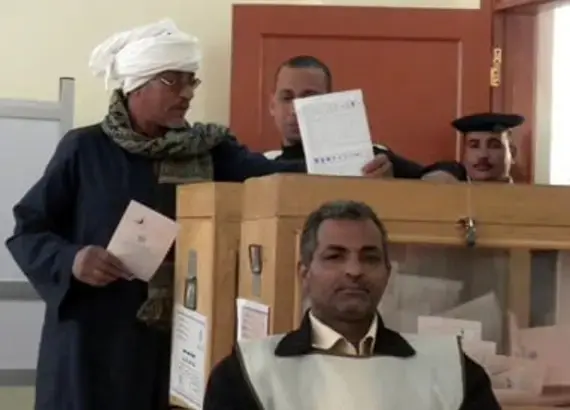
Success Story
First Round of Egyptian Parliamentary Elections Signify Promising Start
Record Number of Voters Overcome Fears of Violence and Administrative Shortcomings
Defying expectations, record numbers of Egyptians completed two largely peaceful days of voting that give rise to the possibility of an election that reflects the will of the people, NDI said in a statement released in Cairo.
NDI’s 45 accredited election “witnesses” from 18 countries noted an enthusiastic, engaged and vigilant voting public, often persevering through long lines at polling stations, to cast their ballots in what many voters described as the first election in Egypt that “counts.” But there were also significant shortcomings including inadequate procedures, assisted voting, campaigning in and around polling centers, late arriving ballots, and staffing delays that led many polling stations to open late. These problems were amplified due to the extraordinary voter turnout.
Despite the recent violence and demonstrations, the Institute found that political parties and candidates from across the spectrum largely expressed the belief that going forward with the elections was a necessary and critical step toward democratization.
“The clear winner thus far is the Egyptian people who have spoken decisively about their desire to complete their transition to democracy and I look forward to following their progress in the days to come,” said Sergio Bitar, former minister and senator from Chile and co-leader of the delegation.
The Institute’s observers, designated as “witnesses,” which is the closest Arabic translation, were deployed throughout region one governorates for the two-day election period. The mission’s objective was to witness impartially every aspect of the election process – including the campaign, the casting and counting of ballots during the election, and the post-election period. The group included 12 long-term witnesses who have worked across the country since Nov. 1 monitoring the pre-electoral environment and campaign period, and who will stay until the elections end in January. The mission builds on NDI’s 25 years of experience observing more than 200 elections around the world including delegations in Morocco, Jordan, Lebanon, Tunisia, the West Bank and Gaza, and Yemen.
In addition to Bitar, who is the president of the Foundation for Democracy, the delegation was co-led by Markus Meckel of Germany, former minister and member of the Bundestag; Mu Sochua, a member of parliament from Cambodia; and Les Campbell of Canada, NDI senior associate and director for the Middle East and North Africa. Others in the delegation included member of parliament Rodaina Al Atti of Jordan and former members of parliament Anita Neville of Canada and Jordi Pedret of Spain.
“In most cases, the supervising judges and officials executed their duties with diligence and earnestness, although many witnesses noted some disorganization and confusion about procedures,” Campbell said. “Demand to vote was so great that lines often stretched outside polling centers and down streets, and ballot boxes were filled to capacity in many areas with new boxes being dispatched to receive the overflow.”
Sochua noted the large numbers of women who turned out to vote. “They were clear about their intention to participate equally in Egyptian politics,” she said. “They waited in long lines, argued for their right to vote and took officials to task who they thought were not performing properly.”
“Expectations were low in the days going into the election as a result of the massive protests and threats of violence,” Meckel said. “But Egyptians defied predictions of gloom to complete a very hopeful process.”
The delegation recommended the following actions to prepare for future rounds of People’s Assembly elections:
- Establish and clearly communicate standard procedures and forms for the nightly counting and reconciliation of ballots to include: counting the ballots received, those used, unused and spoiled, and the number of signatures on the voter list. This information should be recorded and reported on a standardized form distributed by the Supreme Judicial Committee for Elections.
- Conduct media outreach defining what constitutes an invalid ballot.
- Increase the frequency of public updates online and through the media in both the pre-election and election periods.
- Provide procedural instructions for the sealing, securing and storage of ballot boxes once they are filled or polling has ended.
- Increase staffing for call center and information lines.
- Consider having the military establish a campaign-free perimeter for 30 meters around the polling centers, removing signs and prohibiting electioneering as voters enter the polls on the days of voting.
NDI’s international election delegation was funded under a grant from the U.S. Agency for International Development. NDI programs in Egypt are also supported by the Bureau of Democracy Human Rights and Labor at the U.S. Department of State.
Related:
Published Nov. 30, 2011



